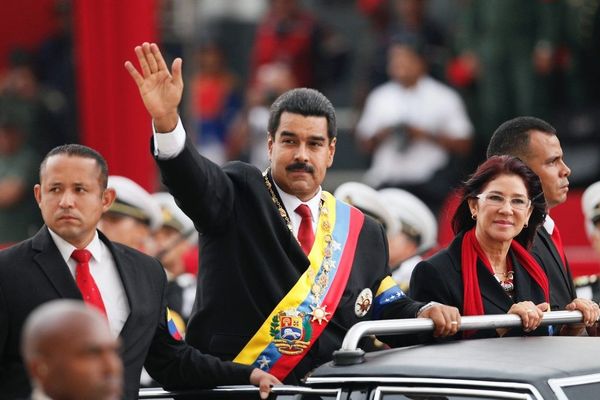Under President and Communist Party General Secretary Xi Jinping, China is engaged in either a multi-year campaign to reduce corruption, or a purge of Xi’s political opponents, or both. While the goals of the campaign are unclear, the intensity is not – very senior Party cadres have been targeted.
As a result, the campaign has inhibited both domestic and foreign businesses. It has thus marked as Xi as the most powerful Chinese leader since Deng Xiaoping.
Corruption Will Persist
The anti-corruption campaign will hardly end corruption. Even if it is remarkably successful, there will still be considerable graft due to absence of rule of law. The Party remains above the law, while the law can be strictly and violently applied to all other institutions and individuals, as the Party prefers.
This enormous gap between Party and society creates an overwhelming incentive to be in the Party or win the Party to your side, however possible. As long as China is governed this way, there will be a hefty amount of corruption.
For the same reason, the campaign will not end the role that personal connections – guanxi - play in Chinese commerce. Connections are obviously important in all business environments, but they are vital without reliable enforcement of contracts and other aspects of law. Because Chinese law is unreliable, it must continue to be supplemented by something like guanxi.
However, the anti-corruption campaign may be able to sharply curb the monetization of guanxi – paying for patronage. Guanxi has been important throughout Party rule (and before) but it began to involve truly large sums of money only 10-15 years ago. When Wen Jiabao replaced Zhu Rongji as Premier, Wen’s family accumulated money Zhu never dreamed of.
Business Costs
It is possible to set the clock back to 2000 in this sense and one of Xi’s goals is almost surely to reign in the excesses of getting rich through Party membership. But the involvement of family and friends of the highest-ranking Party members means the process is difficult.
First, if former Politburo member Zhou Yongkang— a key aide to former Party General Secretary Hu Jintao— can be arrested, anyone can. Second, because the monetization of guanxi has gone unchecked since roughly 2002, most of the Party is implicated to some extent.
Combined, these mean a campaign against the monetization of guanxi can at various times paralyze Party members and their business partners,. Because the Party is so important in the conduct of business, the entire economy can appear to suffer as a result.
The effect may in fact be beneficial – the inhibited transactions may indeed be corrupt, seeming to inflate GDP and other statistics while wasting resources and harming the country as a whole. Nonetheless, less business is being conducted.
While foreign companies are far less intertwined with Party cadres than domestic firms, they also have been affected by the anti-corruption campaign. Soon after the Xi regime assumed government offices in spring 2013, a series of attacks on multinationals began, featuring but not limited to American technology firms.
Coincident with the anti-corruption campaign, foreign firms have been charged with anti-trust violations in a variety of industries, even while the Xi government creates more monopoly power for state-owned enterprises in sectors ranging from agriculture to steel. (There are rumors of additional steps before the end of 2015.)
The Xi government announced market-based reforms the Hu government refused to, yet has treated foreign companies worse. The explanation for this seemingly odd behavior is in fact the anti-corruption campaign.
The unavoidable disruption of domestic firms by the campaign could have created considerable business opportunities for multinationals. That, in turn, would have opened Xi and his allies to the charge of favoring foreigners, a major vulnerability at a time when Xi was undertaking a political offensive. To prevent this, foreign companies became collateral damage.
Xi Benefits
The anti-corruption campaign thus incurs paralysis among domestic firms and has led to a mercantilist assault on multinationals. The benefit to Xi is these costs make him credible. The Party has talked of fighting corruption before even while permitting it to grow - this time is clearly different.
Xi has marked himself as a much stronger leader than Hu or even Hu’s predecessor Jiang Zemin. This is likely worth more to him than some economic pain along the way.













